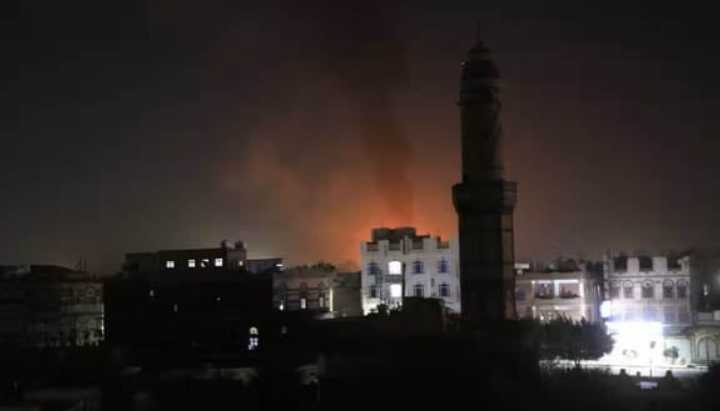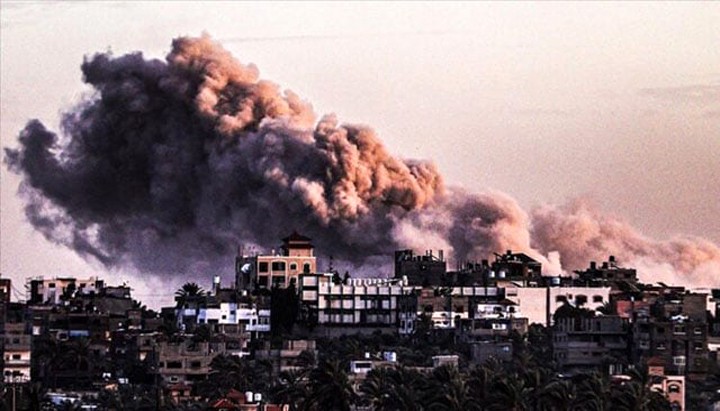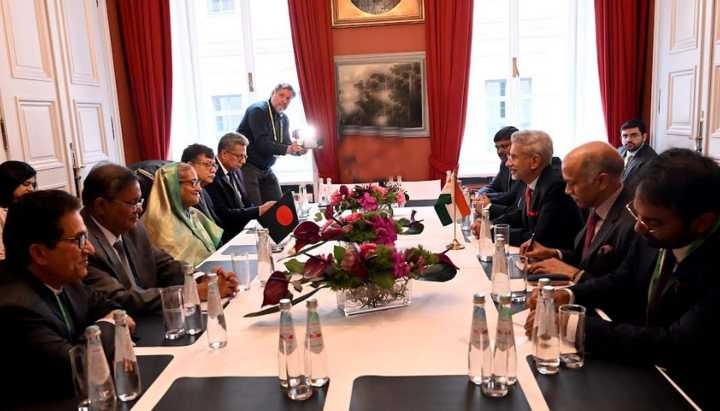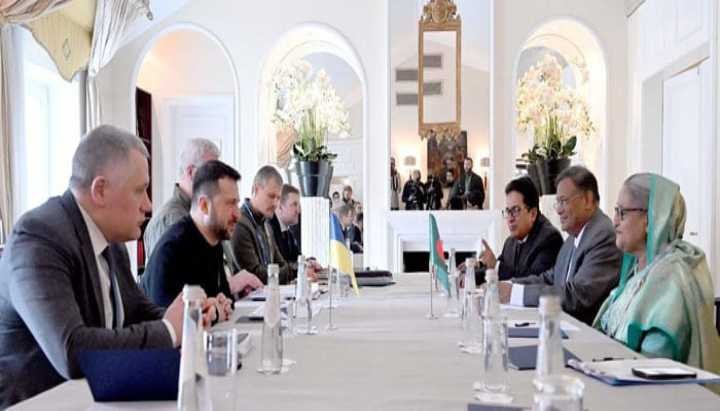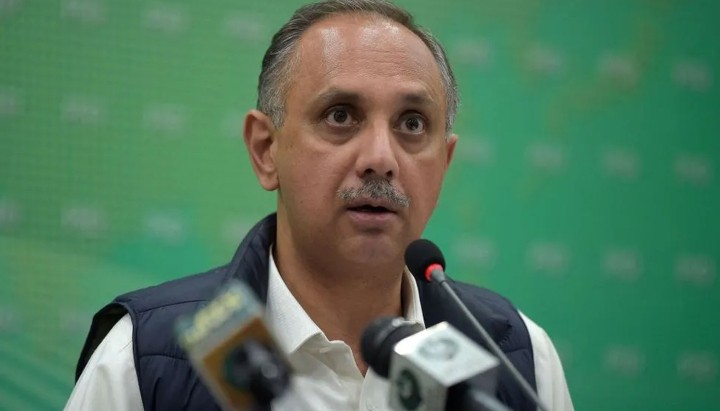A US ban on imports
of Russia's oil ratcheted up punishment for the invasion of Ukraine on Tuesday
as McDonald's and Starbucks closed outlets and Moscow promised safe passage for
some people to flee.
As the number of refugees created by the biggest assault on
a European country since World War Two surpassed 2 million, several of the most
internationally famous brands added to the Kremlin's global isolation on the
13th day of the incursion.
McDonald's, a symbol of capitalism that opened in Russia as
the Soviet Union fell, and coffeehouse chain Starbucks will temporarily close
stores, while Pepsi will stop selling its soft drink brands and Coca-Cola is
halting business in the country.
Washington, meanwhile, imposed an immediate ban on imports
of Russian energy, sparking a further increase in the oil price, which rose
around 4% on Tuesday. Prices have surged more than 30% since Russia's incursion
began on Feb. 24.
Russia - the world's second-largest exporter of crude - has
warned the cost will skyrocket further if the West implements bans.
Despite the prospect of higher household bills, US President
Joe Biden said President Vladimir Putin needed to face consequences for the
assault.
"The American people will deal another powerful blow to
Putin's war machine," he said.
The Kremlin describes its actions as a "special
operation" to disarm Ukraine and unseat leaders it calls neo-Nazis.
Ukraine and Western allies call this a baseless pretext for
an invasion that has raised fears of wider conflict in Europe and could deal a
further hit to the world economy as it tries to recover from the coronavirus
pandemic.
Civilians fled the besieged city of Sumy on Tuesday in the
first successful "humanitarian corridor" opened since Russia's
invasion but Ukraine accused Russian forces of shelling another evacuation
route, from Mariupol in the south of the country.
Talks between Kyiv and Moscow over safe passage have
previously failed, with Ukraine opposing routes out of the country to Russia or
its ally Belarus.
Moscow is ready to provide humanitarian corridors so people
can leave capital Kyiv and four other cities - Chernihiv, Sumy, Kharkiv and
Mariupol - on Wednesday, Mikhail Mizintsev, head of Russia's National Defense
Control Centre, was quoted as saying by the Tass news agency.
"In order to ensure the safety of civilians and foreign
citizens, Russia will observe a regime of silence from 10 am Moscow time (0700
GMT) on March 9 and is ready to provide humanitarian corridors," he said.
It was unclear if the proposed routes would pass through Russia or Belarus.
Ukrainian President Volodymyr Zelenskiy renewed calls on
Tuesday for no-fly zones, something the West has rejected for fears of
escalating the conflict.
The United States turned down a surprise Polish offer to
transfer MiG-29 fighter jets to a US base in Germany to help replenish
Ukraine's air force.
The prospect of flying combat aircraft from NATO territory
into the war zone "raises serious concerns for the entire NATO
alliance," the Pentagon said.
Instead, the West has focused its pressure on sanctions,
mainly on individuals and financial institutions. Up until now, oil and natural
gas had been excluded.
The United States is not a leading buyer of Russian oil and
Europeans, who are far more reliant on it, have been reluctant to follow suit.
Britain, however, said it would also phase out the import of
Russian oil and oil products by the end of 2022, while the EU published plans
to cut its reliance on Russian gas by two thirds this year.
Vyacheslav Volodin, chairman of Russia's State Duma lower
house of parliament, said the measures would hurt Europe while helping the
United States.
"By promoting sanctions against Russian energy
resources, Washington is seeking to occupy the European market," he said
in an online post.
'Apocalyptic'
In Mariupol, hundreds of thousands of people have been
sheltering under bombardment for more than a week. Many tried to leave on
Tuesday along a safe corridor but Ukraine's foreign ministry said Russian
forces violated a ceasefire and shelled it.
Moscow denies targeting civilians.
International Committee of the Red Cross spokesman Ewan
Watson said people in Mariupol were fast running out of electricity, heat,
food, and drinking water.
"The situation in Mariupol is apocalyptic," he
said.
Russia opened a separate corridor out of the eastern city of
Sumy. Buses left for Poltava further west, only hours after a Russian air
strike which regional officials said had hit a residential area and killed 21
people. Reuters could not verify the incident.
Russia said 723 people had been evacuated via that corridor,
including 576 Indian nationals.
Residents were also leaving Irpin, a frontline Kyiv suburb.
Elsewhere, Ukrainian troops repulsed efforts by Russian
forces to enter the eastern city of Kharkiv on Tuesday and foiled a planned
operation by 120 Russian paratroopers near the border, regional governor Oleh
Synehubov said.
Five people, two of them children, were killed late on
Tuesday when Russian planes attacked the town of Malyn, some 100 kilometres (62
miles) northwest of Kyiv, and destroyed seven houses, the state emergency
service said in an online post. Reuters was unable to corroborate.
The United Nations human rights office said it had verified
1,335 civilian casualties in Ukraine, including 474 killed and 861 injured,
since the invasion began on Feb. 24. The real toll is likely higher, it said.
A total of 2 million people, mostly women and children, have
fled, according to the UN refugee agency UNHCR.
Advance slowed
Western countries say Russia's initial battle plan for a
rapid strike to topple Ukraine's government failed early in the war, and Moscow
has adjusted tactics for longer sieges of cities.
"The tempo of the enemy's advance has slowed
considerably, and in certain directions where they were advancing it has
practically stopped," Ukrainian presidential adviser Oleksiy Arestovych
told a briefing on Tuesday.
Ukraine's defence ministry said Vitaly Gerasimov, first
deputy commander of Russia's 41st army, was killed on Monday, the second
Russian major general killed during the invasion. Russia's defence ministry
could not be reached for comment.
The main Russian assault force heading towards Kyiv has been
stuck on a road north of the capital. But to the south, Russia has made more
progress along the Black and Azov Sea coasts.
Within Russia, the war has led to a severe new crackdown on
dissent, with the last remaining independent media largely shut last week and
foreign broadcasters banned.
Russian police arrested at least 100 protesters against the
invasion of Ukraine on Tuesday, the OVD-Info monitoring group said. Police made
no comment.




